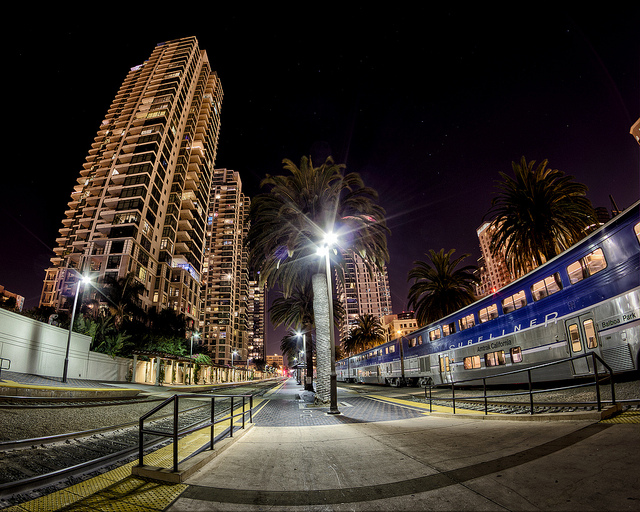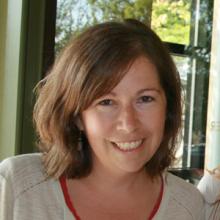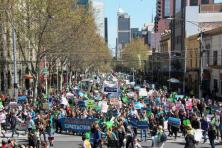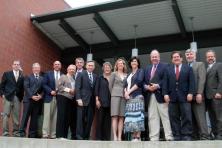Last month, 37 local elected leaders from across Washington State sent a clear statement of support for bold state action on climate change and clean energy. Calling climate change “the great generational challenge of our time,” the officials expressed strong support for: limits and a price on carbon pollution; a commitment to address impacts to vulnerable communities; and investments in solutions that reduce carbon. New Energy Cities is helping local officials advance clean energy in the 2015 legislative session.
King County Cities Commit to Carbon Reduction
On January 8, 2015, the nine founding members of the King County-Cities Climate Collaboration publicly announced their formal adoption of Joint County-City Climate Commitments, including:
- Support for strong federal, regional, state, countywide, and local climate policy
- A 20% reduction of vehicle miles traveled by 2030, and 15% reduction of transportation fuel carbon intensity by 2030
- An increase of countywide renewable electricity 20 percentage points by 2030, and advocacy for phase-out of coal-fired electricity by 2025, with a limit on construction of new natural gas-fired electricity plants
- A 25% reduction of energy use in existing buildings by 2030, and net zero carbon emissions in new buildings by 2030
The commitments include a practical work plan for 2015 and 2016, including state advocacy, partnership with local energy utilities, code adoption, and local efforts to increase community energy efficiency, renewable energy, and electrified transportation.
Low-Carbon City Living, High Quality of Life
As any city manager knows, smart transportation and land use are critical for community satisfaction, public health, economic development, and reduced greenhouse gas emissions. This winter brought several interesting updates along these lines:
- California Governor Jerry Brown called to source half of the state’s electricity from renewable energy, and to cut transportation petroleum use in half by 2030. Natural Resources Defense Council’s Simon Mui wrote about how the Golden State can and will get there, through increased vehicle efficiency, transit access, and strengthening of California’s low carbon fuel standard.
- It looks increasingly likely that the San Diego Association of Governments will have to go back to the drawing board on their transportation plan, because their car-centric proposals run counter to California’s climate goals.
- Solar-powered electric vehicles (EVs) could make suburban living “awesome again,” wrote The Washington Post, and would avoid the air quality problems that coal-fired EVs create.
- Meanwhile, homes in a net-zero community in a suburb of Orlando, FL – with solar power and EV charging stations for each resident – are selling out. The developer has partnered with SolarCity to roll the solar panel cost into the homebuyer’s mortgage to avoid upfront costs.





